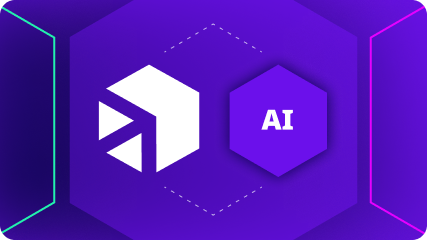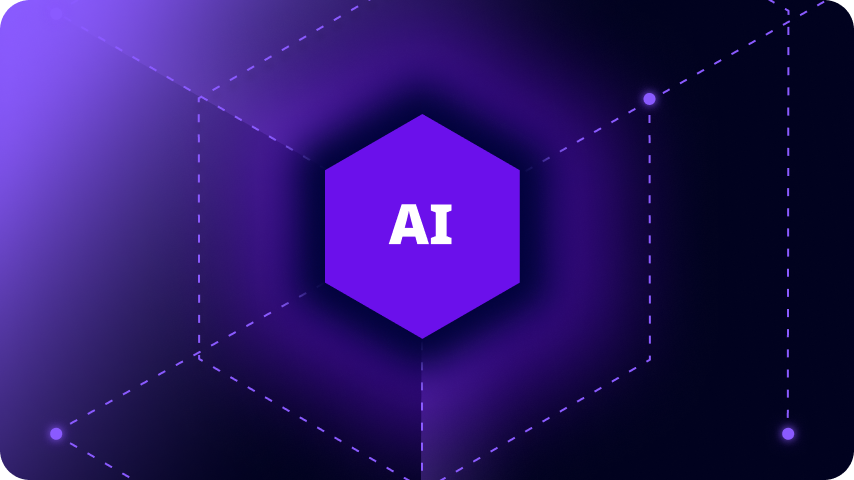maio 19, 2024
Artigo de Digibee CTÓ e cofundador, Peter Kreslins Junior, destaque na Época Negócios [1] em 18 de maio de 2024, veja o ar em destaqueartigo.
A IA generativa definitivamente veio para ficar. Todos os dias aprendemos sobre um novo produto ou melhoria em praticamente todos os setores. O que vemos nos bastidores é uma corrida em direção à IA generativa do ponto de vista da integração empresarial, e esse cenário continuará ao longo de 2024, com as empresas aperfeiçoando suas plataformas e soluções para incorporá-la.
A partir de agora, a IA generativa continuará a transformar a integração de sistemas nas empresas, melhorando a produtividade, as iniciativas de transformação digital e a capacidade de desenvolver, manter e gerir integrações e os seus requisitos de conformidade. No entanto, durante tempos emocionantes de transformação tecnológica, é sempre necessário separar o hype das melhorias testadas e comprovadas que as empresas em setores altamente regulamentados, como bancos, saúde e seguros, podem implementar com segurança, ao mesmo tempo em que percebem os benefícios de tempo, custo e produtividade da nova tecnologia.
Na integração empresarial, a IA generativa tem atualmente aplicações confiáveis e benéficas nestas áreas, principalmente: documentação, orientação e melhores práticas, construção e manutenção facilitadas de integrações e depuração e teste de integrações.
Documentação
A IA generativa pode economizar tempo e trabalho em documentando fluxos de integração, o que também melhora os esforços de manutenção e conformidade. Ele libera os especialistas técnicos da tarefa difícil e demorada de criar e manter pipeline documentação e permite que as equipes se concentrem em iniciativas que podem ajudar a empresa a atingir seus objetivos de negócios, incluindo estratégias de TI, inovação e transformação digital.
A IA generativa pode analisar rapidamente os componentes de uma integração pipeline, incluindo configurações, mapeamento de quais dados estão sendo transferidos, transformações e conexões. Pode então descrever em palavras e diagramas como funciona uma integração, incluindo os sistemas e dados envolvidos, a lógica aplicada, como a integração é acionada, todos os eventos dentro do pipelinee quaisquer dependências associadas.
Documentação gerada por IA ajuda todos os membros da equipe de integração a entendê-lo e mantê-lo, comunicar sua finalidade e detalhes operacionais e registrar os requisitos de conformidade. A IA generativa cria documentação em uma fração do tempo e a atualiza automaticamente após qualquer alteração ser feita no ecossistema de integração.
Orientação e Melhores Práticas
Com a IA generativa, será possível orientar mais facilmente novos usuários sobre plataformas de integração e oferecer doses de conhecimento ao longo de toda a jornada. Por exemplo, detectando e sugerindo melhores práticas de utilização da plataforma e construindo integrações, além da IA funcionar como um assistente personalizado, que conhece as especificidades de cada usuário.
Fácil construção e manutenção
Outra maneira importante pela qual a IA generativa pode ser aplicada à integração de sistemas empresariais é criando instantaneamente “rascunhos” de integração com base em uma vasta coleção de padrões incluídos em um grande modelo de linguagem. Essa abordagem substitui os catálogos ou processos de integração empacotados que as plataformas de integração desenvolvem e mantêm para ajudar os clientes a criar integrações rapidamente.
Em vez de coletar e manter manualmente catálogos de integração comuns, que é um processo que consome muito tempo e recursos, os modelos generativos de IA podem ser treinados para incluir e usar padrões de integração anonimizados comumente desenvolvidos e implantados na plataforma de integração. Mas são os clientes que decidem se seus padrões de integração anonimizados serão incluídos no modelo para treinamento do modelo e possível reutilização.
A IA generativa pode criar integrações instantaneamente com base em prompts, usando qualquer combinação dos padrões armazenados no modelo. Os desenvolvedores podem então revisar as integrações geradas e modificá-las conforme necessário, o que economiza muito tempo e recursos na criação de integrações inteiras ou no uso de padrões de integração que podem estar desatualizados em um catálogo mantido manualmente. A IA generativa também pode documentar automaticamente as integrações que gera, incluindo quaisquer modificações feitas pelos desenvolvedores.
Uma etapa importante após construir integrações é mantê-las. Os modelos generativos de IA podem suportar uma manutenção mais fácil, permitindo mudanças mais consistentes que sigam boas práticas. Assim como o Copilot foi criado para dar suporte à manutenção de código, os modelos generativos de IA aplicados às integrações podem simplificar o árduo processo de evolução.
Integração Tests
TestIntegrações é uma tarefa árdua que exige muito esforço. Modelos de IA generativos aplicados a integrações podem facilitar a construção de diversos casos de teste com uma boa cobertura de cenários. Além disso, o assistente de IA pode facilitar processos de solução de problemas e melhorar integrações.
A IA generativa é uma chave importante para a competitividade e o sucesso. É o desenvolvimento mais significativo na tecnologia de plataforma de integração desde a introdução do moderno, nascido na nuvem, low-code plataformas de integração. A IA generativa também está perto de se tornar e continuará a ser um fator importante na manutenção da competitividade, tanto para fornecedores de integração de sistemas como para organizações que utilizam integrações para otimizar a agilidade e a transformação digital.
Com as melhorias de produtividade proporcionadas pela IA generativa, as empresas têm maior probabilidade de melhorar a eficiência e a sua capacidade de sucesso. Sem IA generativa, as organizações provavelmente ficarão para trás nas suas iniciativas de integração e transformação digital.
Mais sobre a IA da Digibee
A plataforma de integração da Digibee foi construída com base no princípio central de capacitar os desenvolvedores para construir e gerenciar integrações complexas com simplicidade e facilidade, para que possam se concentrar em trabalhos de maior valor. Não é nenhuma surpresa que nossas ferramentas baseadas em IA ofereçam recursos para apoiar, orientar e automatizar tarefas para equipes de desenvolvimento, a fim de permitir produtividade e liberar tempo para inovação. Saber mais:
- CMSWire apresenta Digibee Chefe de Educação e IA
- Digibee apresenta documentação baseada em IA em sua plataforma de integração
- Veja a documentação da IA em ação com um tour rápido
- Aprenda como acelerar seu desenvolvimento workflow com ferramentas baseadas em IA
- Veja como nosso produto e IA aumentaram a produtividade de um banco líder em 75%
Época Negócios é uma fonte de notícias que visa construir uma nova narrativa para o mundo dos negócios e desafiar o status quo do jornalismo económico. Seu conteúdo cobre importante questões para as empresas, que vão desde o sistema bancário aberto até a biotecnologia e inclui questões relativas à cultura do escritório, liderança, reorganização, diversidade e inovação.









